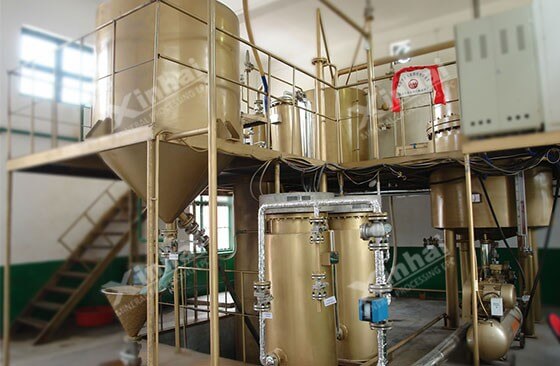

Warm Tip: If you want to know more details about equipment, solutions, etc, please click the button below for free consultation, or leave your requirements!
As a precious metal, gold is commonly used in money, store of value, jewelry and art. Gold method also has a lot of, among them with immersion method and the carbon paste method is relatively common, the two methods using carbon adsorption process, the gold activated carbon is added to pulp, pulp in the gold adsorption onto activated carbon, the formation of gold charcoal, different lies in the coal slurry method is activated carbon in cyanide pulp, made of gold adsorption by activated carbon has dissolved, then to extract gold from the activated carbon. The method of carbon leaching is to thicken before leaching, add carbon soon after leaching, simultaneously leaching and adsorption, and then extract gold. And the realization of these two methods desorption electrolysis equipment is essential.
Desorption electrolysis system can be said to be the highlight of carbon adsorption process, so how does the system achieve the separation of carbon and gold? The desorption electrolysis device is not a single device, but a whole system. It mainly consists of two most, and desorption electrolysis, the separate and desorption electrolytic process, the solvent in comprehensive desorption tower, expensive liquid electrolyte is made within the independence of the electrolytic cell, the solvent desorption solvent, expensive liquid heating, cooling and solvent recovery four procedures set in the integrated desorption tower, and mount vapor desorption gold charcoal after your liquid, through the pipe into independent setting of electrolytic cell, got coarse gold, purified to get gold again.

According to the technical performance, technical index and production capacity of the desorption process and equipment, China's gold-bearing carbon desorption electrolysis equipment can be divided into three generations. Nowadays, concentrators use third-generation high-temperature and high-pressure cyanide-free desorption electrolysis system, and compared with conventional third-generation desorption electrolysis equipment, the advantages of the independent research and development and improvement of high-efficiency, low-consumption and rapid desorption electrolysis system are more prominent:
1. High desorption rate. Under the condition of high temperature and high pressure, the desorption rate of gold-loaded carbon is greatly increased, up to 98%, and the desorption time is shortened by ten times.
2. Save energy and reduce cost. Compared with the heating and atmospheric pressure process, the whole desorption process is basically carried out under the same temperature and pressure, and the desorption solution can directly enter the electrolytic cell without cooling treatment, which greatly saves the consumption of heat energy, and the power consumption is only 1/4 ~ 1/2 of the conventional system.
3. The desorption combination agent contains carbon activator, which can regenerate the carbon.
4. Safe operation. Three safety protection measures are adopted, that is, intelligent system itself, automatic pressure limiting pressure releasing mechanism and safety valve. Multiple measures to ensure safety.

Since the high temperature and high pressure desorption electrolysis system was put into use, this equipment, as one of the core equipment of the project scheme, has played an important role in many gold mine projects. With its high efficiency, low consumption and fast system performance, it ensured the final standard and production of the project.
Last: How to Extract Lithium from Its Ore?
Next: How To Improve The Metal Recovery In The Sorting Process
1How To Operate Multilayer Thickener And How To Deal With Problems?
 0
0
 1933
1933
23 Commonly Used Zinc Powder Feeders In Cyanidation Plant
 0
0
 2272
2272
